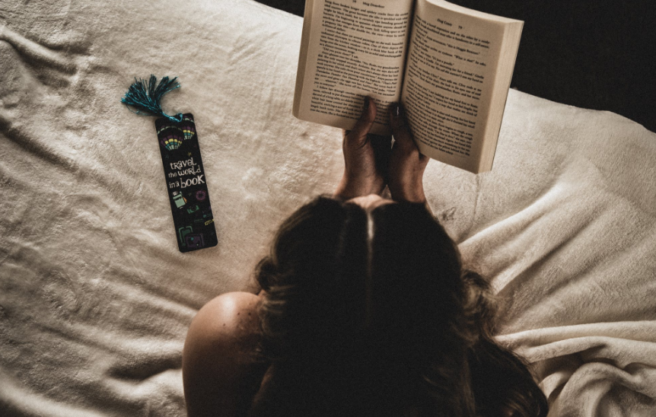
A non-fiction book to suit every Christmas wishlist
Non-Fiction books are experiencing a moment. You need only look at your local bookshop's shelves to see them strewn with the words ‘real-life account’ ‘true story’ and ‘the authoritative guide to…’. And what a selection there is, with something for literally everyone. From niche and intriguing historical studies to accessible and interesting scientific takes on modern life to poignant and inspiring stories of overcoming adversity, the non-fiction shelf has every reader covered. Have a browse through some of our selections below to meet your new favourite read!
A Ghost in the Throat by Doireann Ní Ghríofa (Tramp Press)

‘When we first met, I was a child, and she had been dead for centuries.'
A true original, this stunning prose debut by Doireann Ní Ghríofa weaves two stories together. In the 1700s, an Irish noblewoman, on discovering her husband has been murdered, drinks handfuls of his blood and composes an extraordinary poem that reaches across the centuries to another poet. In the present day, a young mother narrowly avoids tragedy in her own life. On encountering the poem, she becomes obsessed with finding out the rest of the story.
Doireann Ní Ghríofa has sculpted a fluid hybrid of essay and autofiction to explore Eibhlín Dubh Ní Chonaill’s Caoineadh Airt Uí Laoghaire, famously referred to by Peter Levi as ‘the greatest poem written in either Ireland or Britain during the eighteenth century.’
A devastating and timeless tale about finding your voice by freeing another’s.
My Second Home: Sylvia Plath in Paris, 1956’ by Dave Haslam (Confingo Publishing)
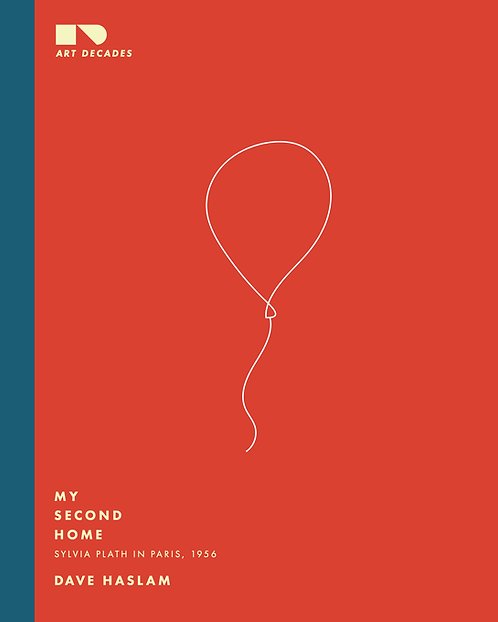
Sylvia Plath was in Paris during Easter 1956, alone in a hotel near Notre Dame. She’d grown to love the city after spending Christmas there with Richard Sassoon and she’d hoped he’d be with her for Easter too, but he hadn’t answered her letters. She’d met Ted Hughes a month earlier;
Within ten weeks they’d be married.
In the fourth book in his Art Decades series, Dave Haslam describes this key period in Sylvia Plath’s life. We discover how she filled those Paris days, including having dinner with an Italian communist, embracing the idea of drunken afternoon sex with a friend of a friend, sketching in the park, and lying in an attic room listening to the sound of the Paris rain as she considered decisions and future plans: in her phrase, ‘the fatal dance’ of choices and alternatives.
‘Never Mind the B#ll*cks, Here's the Science: A scientist's guide to the biggest challenges facing our species today’ by Luke O'Neill (Gill)
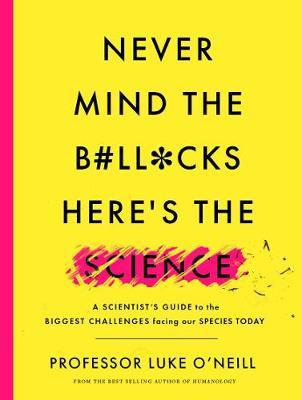
In his fascinating and thought-provoking new book, Professor Luke O'Neill, one of the leading voices of authority during the COVID-19 pandemic, grapples with life's biggest questions and tells us what science has to say about them:
Do we have control over our lives?
Must we vaccinate our children?
Are men and women's brains different?
Will we destroy the planet?
Covering topics from global pandemics to gender, addiction to euthanasia, Luke's trademark easy wit and clever pop-culture references deconstruct the science to make complex questions accessible. ‘Never Mind the B#ll*ocks’ is a celebration of science and hard facts in a time of fake news and sometimes unhelpful groupthink.
London Gothic by Nicholas Royle (Confingo Publishing)
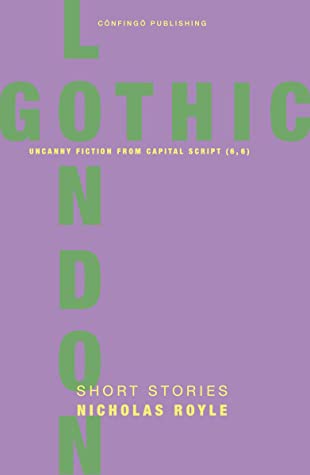
In his fourth short story collection, an exploration of the dark side of modern London, Royle redefines urban Gothic for the twenty-first century. Out go bats, rats, pea-soupers, gargoyles and Jack the Ripper, making way for doppelgängers, geomancy, ghost trains, gentrification, haunted houses, mass-murder walking tours, mannequins and Brexit.
An anthology of fifteen stories, written between 2000 and the present day – including seven brand-new pieces – which demonstrate Nicholas Royle’s wide range of literary styles and techniques.
Often writing against a background of film, art or literature, Royle unearths unease in the streets of Shepherd’s Bush, Hackney or South Tottenham, and creates uncanny effects with innovative, experimental forms.
‘Spastic Diplegia—Bilateral Cerebral Palsy’ by Lily Collison (Gillette Children’s Healthcare Press)
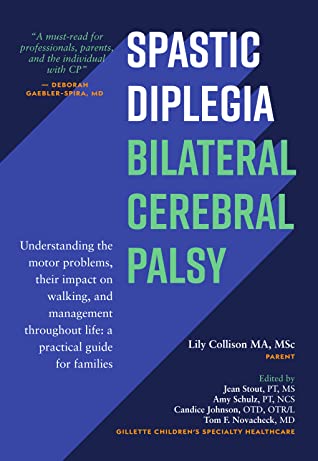
Part-practical guide, part-memoir, the book charts the lifespan of the condition and is aimed at families and professionals
When Lily Collison’s one-year-old son, Tommy, was diagnosed with spastic diplegia (also known as bilateral cerebral palsy) in 1995 it started her search for knowledge of the condition and how best to help her son. Her search for information over the years led her to realise that there was no book specifically on spastic diplegia, which is a subtype of cerebral palsy (CP) – therefore, she decided to write one. The result is ‘Spastic Diplegia—Bilateral Cerebral Palsy’.
Keen to ensure her son had the opportunity to live his life to the fullest, Lily set about educating herself on spastic diplegia.
“I wanted to write the book I would have loved to have had when I received Tommy’s diagnosis back in 1995.”
‘Agent Sonya: Moscow's Most Daring Wartime Spy’ by Ben Macintyre (Crown Publishing Group)
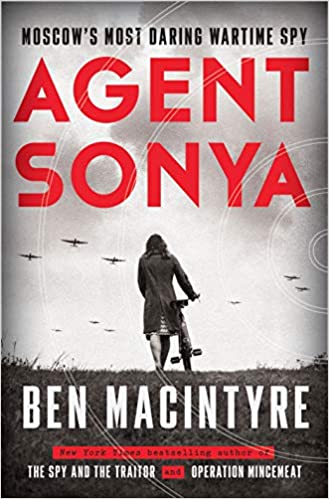
The true story behind the Cold War’s most intrepid female spy.
In 1942, in a quiet village in the leafy English Cotswolds, a thin, elegant woman lived in a small cottage. Ursula Burton was friendly but reserved, and spoke English with a slight foreign accent. By all accounts, she seemed to be living a simple, unassuming life.
They didn’t know that she was a high-ranking Soviet intelligence officer. Behind the facade of her picturesque life, Burton was a dedicated Communist, a Soviet colonel, and a veteran agent, gathering the scientific secrets that would enable the Soviet Union to build the bomb.
This true-life spy story is about a woman who, over the course of her career, was hunted by the Chinese, the Japanese, the Nazis, MI5, MI6, and the FBI—and she evaded them all.
Ben Macintyre has written a history of a legendary secret agent, a woman who influenced the course of the Cold War and helped plunge the world into a decades-long standoff between nuclear superpowers.
‘Failosophy: A Handbook for when Things Go Wrong’ by Elizabeth Day (Fourth Estate)
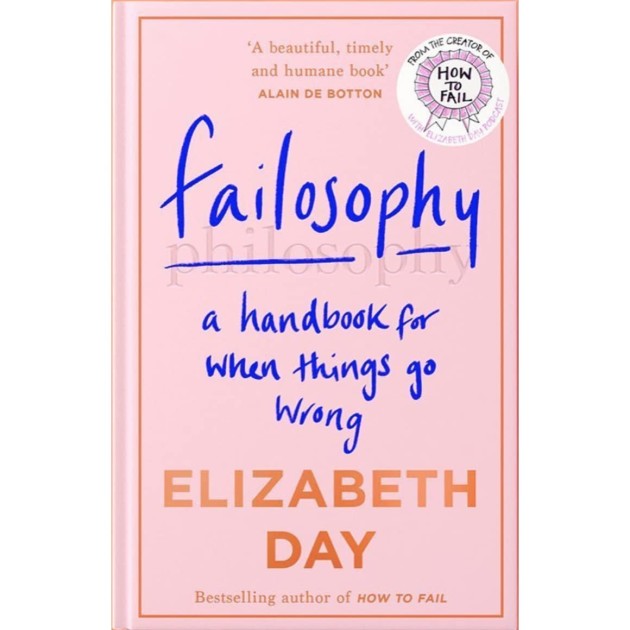
Elizabeth Day, author of ‘How to Fail’ ‘Failosophy’ and creator of the award-winning podcast, brings together all the lessons she has learned from her own life, from conversations with her podcast guests – including Malcolm Gladwell, Phoebe Waller-Bridge, Nigel Slater, Emeli Sande, Andrew Scott and many, many more – and from meeting readers and listeners who have shared their stories with her.
She has distilled all this precious material into key principles of failure, like ‘You are not your worst thoughts’, ‘Almost everyone feels they’ve failed at their 20s’ and ‘Failure is data acquisition’
Practical, inspirational and with carefully selected quotes from the podcast guests, who have insights into everything from failed exams, romantic break-ups and how to cope with severe anxiety, Failosophy is the essential guide for turning our failures into our successes.
‘Accidentally Wes Anderson’ by Wally Koval, and foreword by Wes Anderson (Voracious)

Accidentally Wes Anderson began as a personal travel bucket list, a catalog of visually striking and historically unique destinations that capture the imagined worlds of ‘Grand Budapest Hotel’ director and writer, Wes Anderson.
Accidentally Wes Anderson tells the stories behind more than 200 of the most beautiful, idiosyncratic, and interesting places on Earth. This book travels to every continent and into your own backyard to identify quirky landmarks and undiscovered gems: places you may have passed by, some you always wanted to explore, and many you never knew existed. Fueled by a vision for distinctive design, stunning photography, and unexpected narratives, Accidentally Wes Anderson is a passport to inspiration and adventure.
Perfect for modern travelers and fans of Wes Anderson's distinctive aesthetic, this is an invitation to look at your world through a different lens.
‘Mad and Bad: Real Heroines of the Regency’ by Bea Koch (Grand Central Publishing)
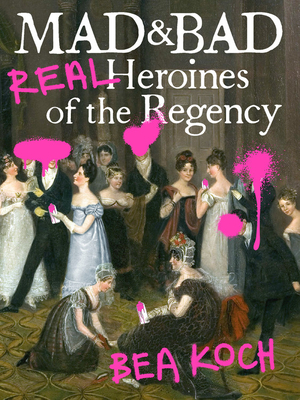
Discover a feminist pop history that looks beyond Jane Austen to highlight the Regency women who succeeded on their own terms and were largely lost to history — until now.
The popular image of the Regency continues to be mythologized by the hundreds of romance novels focusing on wealthy, white, Christian members of the upper classes.
But there are hundreds of fascinating women who don't fit history books limited perception of what was historically accurate for early 19th century England. Women like Dido Elizabeth Belle, whose mother was a slave but was raised by her white father's family in England, Caroline Herschel, who acted as her brother's assistant as he hunted the heavens for comets, and ended up discovering eight on her own and Anne Lister, who lived on her own terms with her common-law wife at Shibden Hall.
In Mad and Bad, we look beyond popular perception of the Regency into the even more vibrant, diverse, and fascinating historical truth.
‘Channel Kindness: Stories of Kindness and Community’ by Born This Way Foundation Reporters and Lady Gaga (Feiwel & Friends)
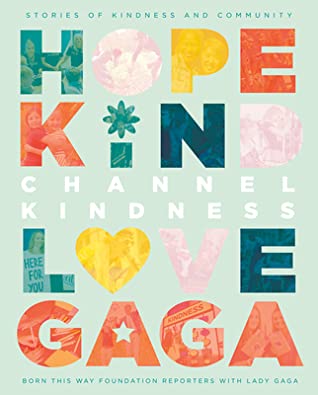
The quiet power of kindness can change the way we view one another, our communities, and even ourselves. Lady Gaga embodies this mission, and through her work, brings more kindness into our world every single day.
Through the years, the Born This Way Foundation collected stories of kindness, bravery and resilience from young people all over the world, proving that kindness truly is the universal language.
Within these pages, you’ll meet young changemakers who prevailed in the face of bullies, who started their own social movements, who decided to break through the mental health stigma and share how they felt, who created safe spaces for LGBTQ+ youth, and who have embraced kindness with every fiber of their being by helping others without the expectation of anything in return.
Kindness is always transformational, and its never-ending ripples result in even more kind acts that can change our lives, our communities, and our world.
‘The Unanswered Letter: One Holocaust Family's Desperate Plea for Help’ by Faris Cassell (Regnery History)
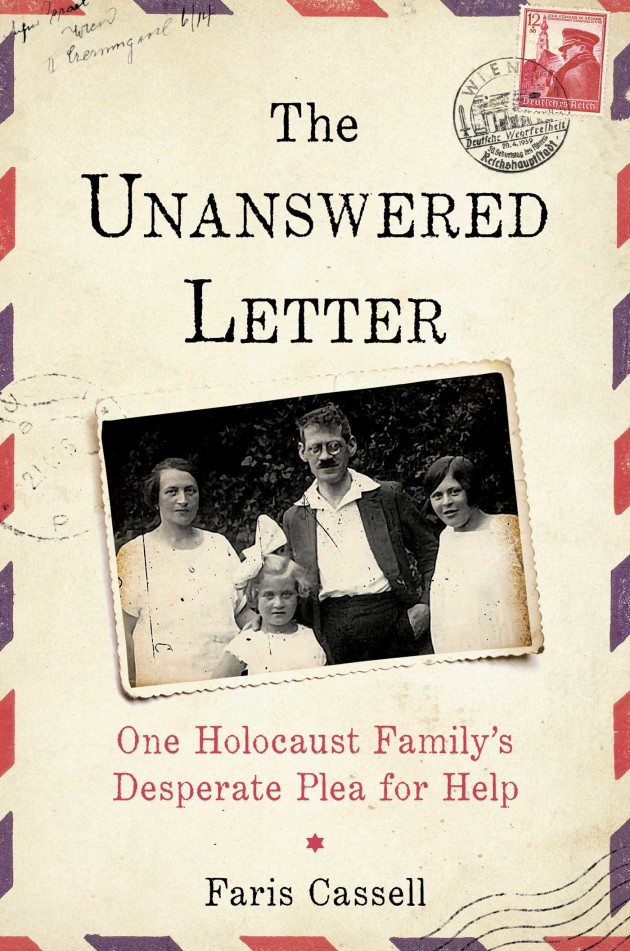
In 1939, as the Nazi closed in, Alfred Berger mailed a desperate letter to an American stranger who happened to share his last name. He and his wife had found escape routes for their daughters. But now their money, connections, and emotional energy were nearly exhausted. Alfred begged the American recipient of the letter, “You are surely informed about the situation of all Jews in Central Europe. . . My daughter and her husband will go. . . to America . . . help us to follow our children. . . It’s our last and only hope . . .”
After languishing in a California attic for decades, Alfred’s letter ended up in the hands of Faris Cassell, a journalist who couldn’t rest until she discovered the ending of the story. Traveling across the United States as well as to Austria, the Czech Republic, Belarus, and Israel, she uncovered an extraordinary story of heart-wrenching loss and unforgettable love that endures to this day.
A story that will move any reader, The Unanswered Letter is a poignant reminder that love and hope never dies.






